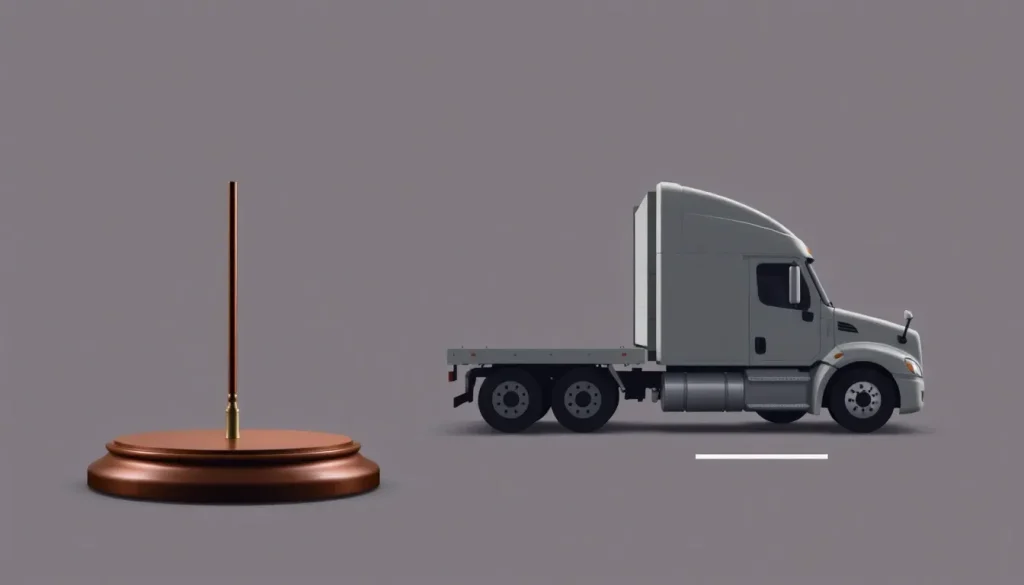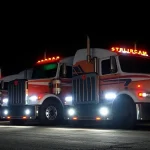Appeals court halts US DOT rule for non-domiciled CDL holders

The trucking industry in the United States is facing significant changes due to recent regulatory decisions regarding commercial driver's licenses (CDLs) for non-domiciled holders. Understanding the implications of these changes is crucial for drivers, companies, and policymakers alike. This article delves into the recent court rulings and the broader context surrounding non-domiciled CDLs.
Understanding non-domiciled CDLs
A non-domiciled commercial driver's license (CDL) is a special type of driver's license issued to individuals who are not permanent residents or citizens of the United States but are legally authorized to work within the country. These licenses enable individuals, often foreign workers on temporary visas, to operate commercial vehicles. The issuance of non-domiciled CDLs has been a crucial aspect of the U.S. trucking industry, especially given the ongoing driver shortage.
Typically, non-domiciled CDLs are granted to individuals holding specific visa types, which may include:
- H-2A visas: For temporary agricultural workers.
- H-2B visas: For temporary non-agricultural workers.
- E-2 visas: For investors and their employees from treaty countries.
The recent regulations have raised concerns among drivers and industry stakeholders regarding the accessibility of these licenses. As many non-citizen drivers have contributed significantly to the economy, understanding the implications of regulatory changes is vital for ensuring a stable workforce.
Recent developments in non-domiciled CDL regulations
On November 10, 2023, a U.S. federal appeals court made a pivotal decision by ordering the Department of Transportation (DOT) to pause the enforcement of its emergency final rule that restricts non-citizens' ability to obtain CDLs. This ruling is crucial as it provides a temporary reprieve for many drivers who may be affected by the new regulations.
The court's statement emphasized that this administrative stay is intended to give the court adequate time to consider emergency motions for stay pending review. Importantly, this does not reflect a ruling on the merits of those motions, indicating that further deliberation is necessary.
The implications of the DOT's emergency rule
The rule, announced by DOT Secretary Sean Duffy in late September, has significant ramifications for non-citizen drivers. It stipulates that only certain visa holders (H-2A, H-2B, and E-2) are eligible to obtain a CDL. Furthermore, the rule imposed additional requirements on states regarding the issuance of these licenses, which could lead to bureaucratic challenges and delays in processing.
According to estimates from the Federal Motor Carrier Safety Administration (FMCSA), there are approximately 200,000 non-domiciled CDL holders in the U.S. This number represents a substantial portion of the trucking workforce, and any changes in their eligibility to hold a CDL can have far-reaching effects on the industry.
Legal challenges against the new regulations
In response to the DOT's new rule, a group led by Public Citizen filed a lawsuit on behalf of Jorge Rivera Lujan, a long-time CDL holder and Deferred Action for Childhood Arrivals (DACA) recipient. The lawsuit claims that the government did not adhere to the proper rulemaking procedures when implementing these changes, raising questions about the legality and fairness of the new regulations.
This case, known as Lujan v. FMCSA, highlights the ongoing tensions between regulatory bodies and the rights of non-citizen workers. As the case progresses, it could set important precedents regarding the treatment of non-domiciled CDL holders and their ability to work legally within the trucking industry.
The future of non-domiciled CDLs
As the appeals court deliberates on the motions concerning the DOT's emergency rule, the future of non-domiciled CDLs remains uncertain. The outcome of this case could influence several aspects of the trucking industry, including:
- The number of non-citizen drivers able to work legally in the U.S.
- The regulatory framework governing CDLs and the requirements for obtaining them.
- The overall supply of drivers, which is critical given the ongoing shortage in the industry.
Industry experts and stakeholders are closely monitoring the developments, as the decisions made now will shape the landscape of commercial driving for years to come. In a time when the demand for qualified drivers is surging, ensuring that non-citizen workers can participate in the workforce is essential for maintaining the U.S. economy's momentum.
For those interested in learning more about the legal battle around non-domiciled CDLs, a recent YouTube video titled "Federal Court Battle Launched to Block DOT's Non Domiciled CDL Rule" provides an overview of the issue. You can view it below:
Conclusion: The vital role of non-domiciled drivers in the trucking industry
The ongoing discussions and legal proceedings surrounding non-domiciled CDLs highlight the essential role that non-citizen drivers play in the U.S. trucking industry. As the nation grapples with a driver shortage, it is critical to ensure that regulations do not inadvertently limit the ability of these drivers to contribute to the economy.
The outcome of the current legal challenges and regulatory reviews will not only impact individual drivers but also the broader trucking community, emphasizing the need for thoughtful and inclusive policies that recognize the contributions of all workers in this vital sector.




Leave a Reply